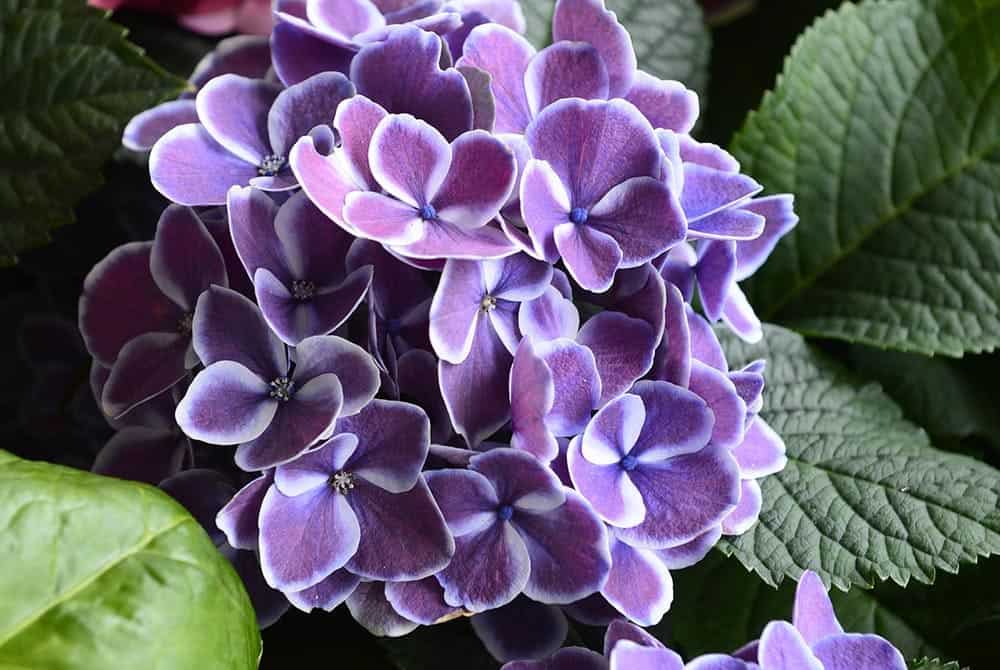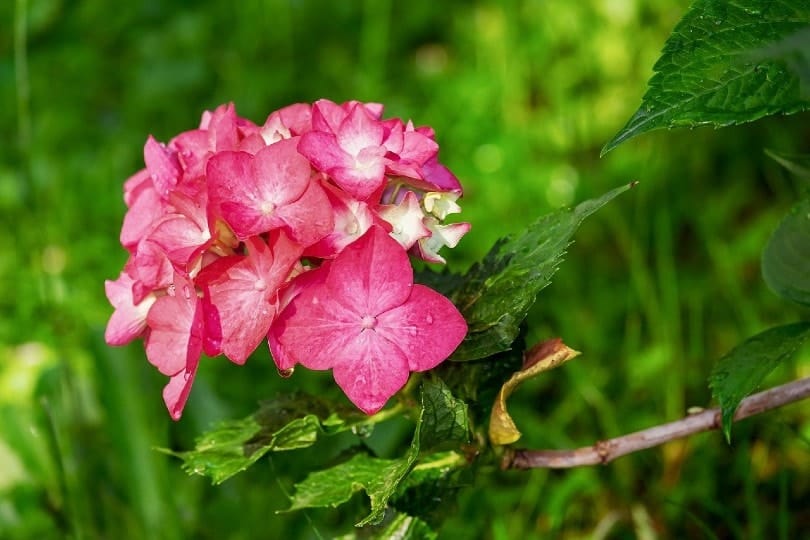
While hydrangeas are poisonous to cats, it should be noted that a very large amount must be consumed by your feline friend in order for them to become sick. Symptoms are often mild and tend to go unnoticed. However, if your cat experiences vomiting, diarrhea, or excessive lethargyafter eating a hydrangea, take them to the veterinarian immediately.
Why Are Hydrangeas Poisonous?
The buds, flowers, and leaves of the hydrangea plant contain amygdalin, which is a cyanogenic glycoside found in many different plants. When a cat consumes this chemical, its body metabolizes it and produces cyanide. Cyanide is toxic to mammals, particularly if the pet is small, as they need to consume less to become sick.
What Are the Symptoms of HYDRANGEA POISONING?
The most common symptoms that may appear if your cat consumes a toxic portion of hydrangeas are related to gastointestinal issues. This will result in vomiting and diarrhea and in rare cases, lethargy, depression, and confusion.

What Do I Do if My Pet Has Hydrangea Poisoning?
Poisoning from hydrangeas in cats often kicks approximately 30 minutes after they consume the plant. If you notice any troubling symptoms and know that your cat has had access to hydrangeas, take your cat to the vet immediately.
It would help to bring a sample of the suspected plant with you to the veterinarian so that your vet can properly identify the plant. Treatment may include hospitalization as well as intravenous fluid therapy to flush out the potential toxins that your cat has ingested. Medication may be prescribed, and your vet may suggest feeding your cat a bland diet.
How Can I Prevent Hydrangea Poisoning?
The best way to protect your kitty from hydrangea poisoning is to avoid keeping your hydrangeas in an area where your pet has access.. This can be done by keeping the plants at a height they cannot reach, as well as maintaining them so that any leaves or flowers that fall off of the plant are out of reach. There are also other options to prevent hydrangea poisoning with your pet, including:
- Botanical oil sprays: Botanical oil sprays can be t applied to your garden plants. They releasea scent that is not pleasant for your pet, which will prevent them from eating your hydrangeas or other toxic plants.
- Motion-activated sprinklers: These sprinklers are installed on the edge of your garden to keep your cat from entering. It will detect the motion of your cat and spray in their direction, which will likely prevent them from entering.
- Deterrent Mats: Deterrent mats make the ground around the garden uncomfortable for your cat to walk on and enter.
Conclusion
If you are careful, you don’t need to avoid keeping hydrangeas around your home. If you prevent your cat from accessing the plants, it’s unlikely that they will ingest a toxic amount. It is important that you are aware of the dangers and remember to keep an eye on where your cat roams and what they eat.
Featured Photo Courtesy: Pixabay






